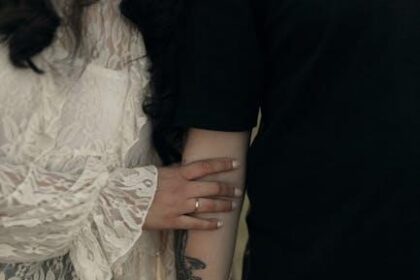There’s a heaviness that clings to the heart when we carry resentment and bitterness-a weight that dims our joy and drains our spirit. Healing the heart isn’t just about forgetting the pain or pretending it never happened; it’s about finding the courage to release what no longer serves us. In this space, we’ll explore the delicate journey of letting go, embracing forgiveness, and reclaiming the lightness that comes when we free ourselves from the chains of anger and hurt. Because true healing begins the moment we choose to open our hands and liberate our hearts.
Understanding the Deep Roots of Resentment and Bitterness
At its core, bitterness stems from unresolved wounds that linger beneath the surface, quietly fester, and deepen over time. These feelings often take root in moments when expectations clash with reality, leaving a silent ache that hardens into resentment. It’s not just about the initial hurt but the persistent replaying of those painful experiences in our minds, which magnifies the wounds and blinds us to the possibility of healing. Understanding this emotional cycle is the first step towards breaking free, as it allows us to acknowledge the pain without letting it define our present.
Often embedded within this emotional struggle are layers of unmet needs and suppressed emotions, including:
- Unspoken grievances: Words left unsaid that continue to echo.
- Unacknowledged pain: Inner suffering dismissed or ignored.
- Fear of vulnerability: The hesitation to express hurt for fear of judgment or rejection.
By shining a light on these hidden corners, we begin to soften the edge of bitterness, creating room for compassion and self-acceptance. This awareness transforms our perspective – from seeing ourselves as victims of circumstance to becoming empowered architects of our emotional freedom.
How Holding On Hurts Your Emotional and Physical Wellbeing
Clinging to resentment and bitterness is like carrying a heavy, invisible burden that weighs down both your mind and body. The emotional toll manifests as chronic stress, anxiety, and a persistent sense of unrest that can cloud your ability to find joy in everyday moments. This emotional heaviness disrupts your peace, often leading to sleepless nights and a restless mind that replays old grievances. The constant replaying of hurtful memories triggers a flood of negative hormones, which can interfere with your brain’s ability to regulate emotions and cultivate happiness.
Physically, the effects are just as profound and detrimental. Holding onto anger and hurt can increase blood pressure, weaken the immune system, and cause muscle tension-all silent reminders that your body is struggling to cope with the weight of unresolved pain. When your body is stuck in this heightened state of stress, it can lead to persistent headaches, digestive issues, and general fatigue, making it harder to heal and thrive. The vicious cycle creates a space where bitterness perpetuates physical illness, reminding you just how crucial it is to release those toxic emotions to reclaim your health and vitality.
- Emotional exhaustion from reliving past hurts
- Physical symptoms such as headaches, fatigue, and tension
- Increased stress hormones that disrupt overall wellbeing
- Weakened immune response leading to greater illness risk
Practical Steps to Release Pain and Embrace Forgiveness
Begin by acknowledging your feelings without judgment-this is the foundation of true healing. Allow yourself to sit with the pain, recognizing its presence instead of pushing it away. Next, practice mindful breathing or meditation to create a safe internal space where forgiveness can gently take root. Journaling can be a powerful tool here; write letters you don’t intend to send, expressing everything that weighs heavy on your heart. These acts can dismantle the walls built by resentment and invite compassion to slowly seep in.
From there, act with intention by choosing to forgive, not for the person who hurt you, but for your own peace. Cultivate empathy by reminding yourself that everyone carries invisible battles. Surround yourself with supportive people who encourage growth rather than fuel pain. Embrace small rituals-lighting a candle, taking a walk at sunrise, or reciting affirmations-that anchor you in the present moment and reinforce your commitment to release bitterness. Remember, forgiveness is a process, and you’re allowed to take it one heartfelt step at a time.
Cultivating Compassion and Finding Peace Within Your Heart
True healing begins when you choose to soften the defenses built around your heart. It’s a tender act of bravery-allowing yourself to step out of the shadows of anger and bitterness, and gently welcome compassion as your guide. This isn’t about forgetting the pain or pretending it didn’t happen; rather, it’s about releasing the weight that keeps your spirit tethered to past hurts, freeing yourself to experience joy and connection anew. Embracing compassion opens a sacred space within, where you can hold both your vulnerability and strength simultaneously.
To nurture this inner peace, consider weaving these practices into your daily life:
- Mindful breathing: Pause and center your attention on the breath to invite calm.
- Journaling your emotions: Write freely to uncover and release buried feelings.
- Acts of kindness: Extend yourself a little grace and offer kindness to others, no matter how small.
- Forgiveness rituals: Create personal ceremonies to honor the process of letting go.
Each intentional step fosters a deeper connection to your heart’s resilience, transforming pain into a wellspring of love and peace.
The Way Forward
As we close this chapter on healing the heart, remember that letting go of resentment and bitterness is not a one-time event, but a courageous journey toward reclaiming your peace. It’s about choosing freedom over the weight of past wounds and embracing the possibility of joy that lies beyond the pain. Your heart deserves that tenderness, that release, and that fresh start. So take a deep breath, be gentle with yourself, and step forward into the healing light-because the most beautiful chapters are written when we finally set ourselves free.
















